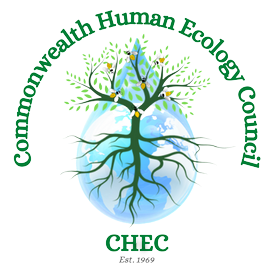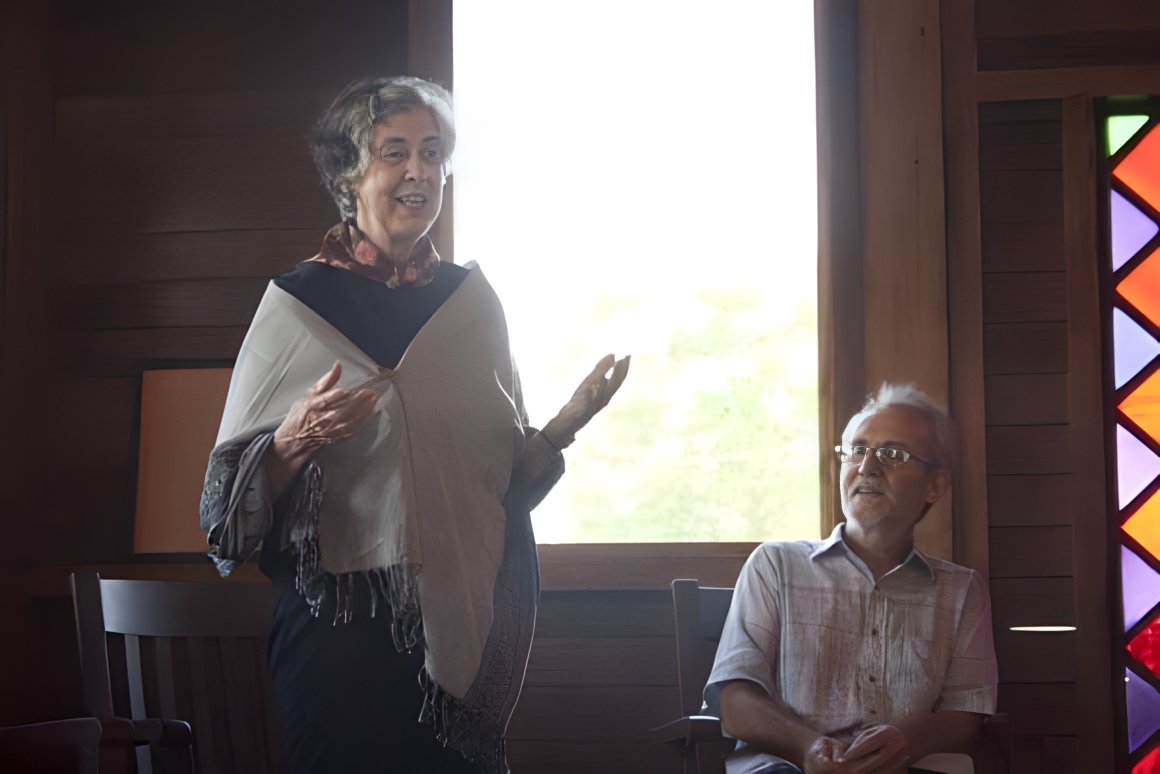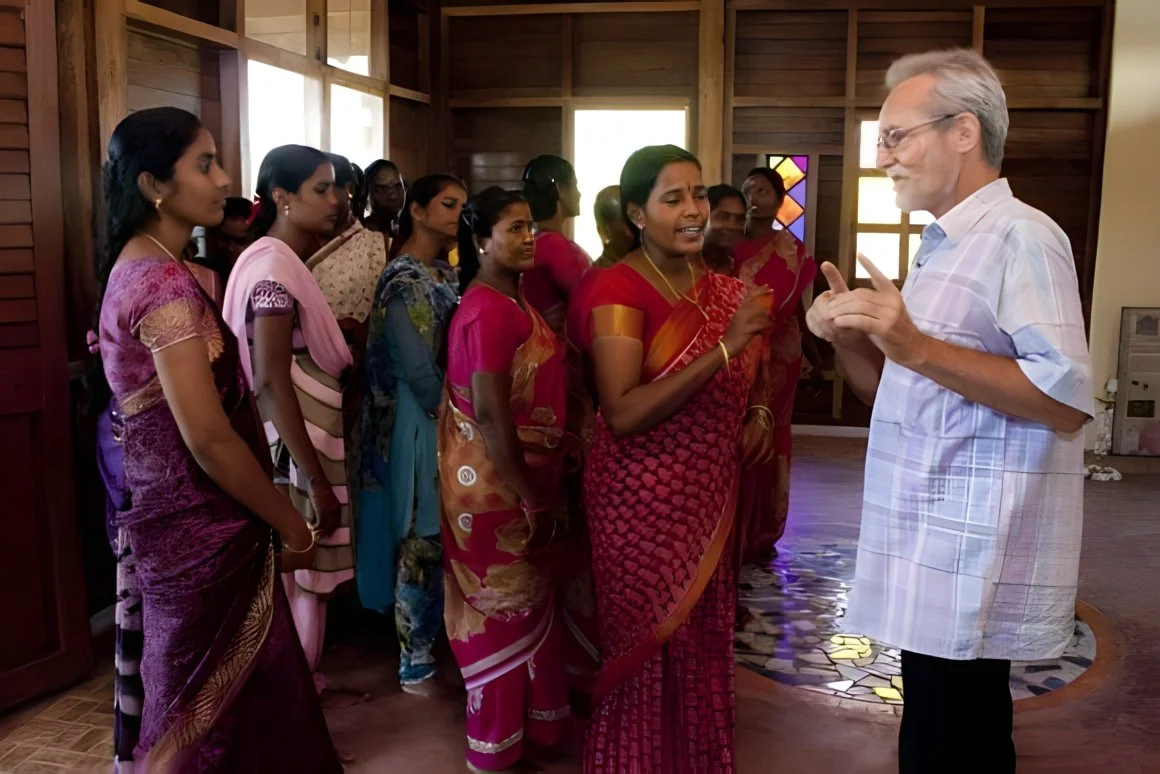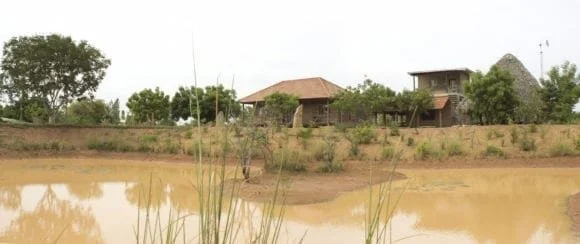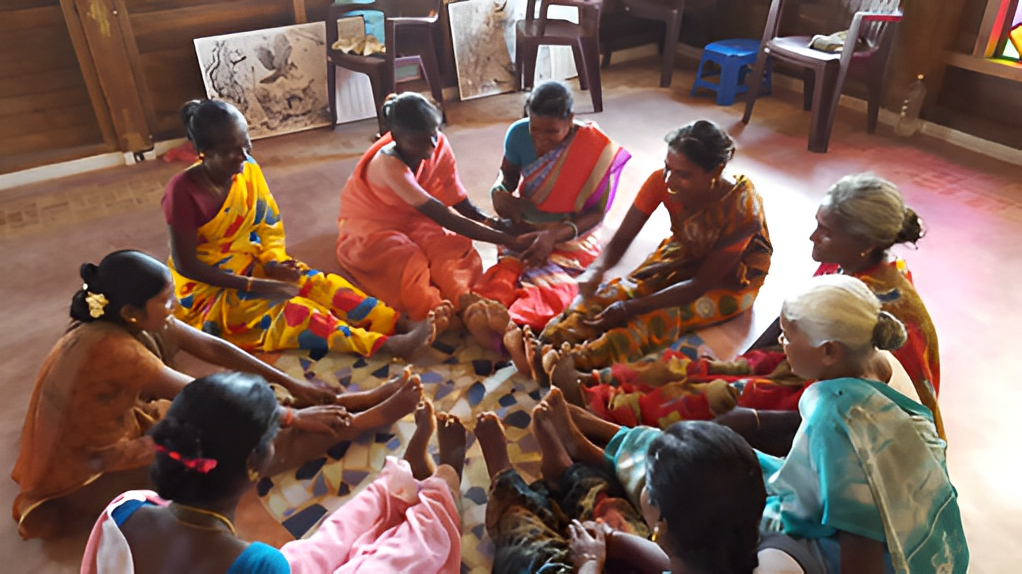
Nadukuppam Community Training Centre
CHEC is delighted to announce that it has allocated a generous grant from The Heath Trust for the construction of the Nadukuppam Community Training Centre at Pitchandikulam Forest, a Unit under the Auroville Foundation.
The project is situated in one of Pitchandikulam’s outreach centres, at Nadukuppam Village in the centre of the Kaluveli Bio-Region, 30 kilometers from Auroville.
Supporting the Local Farming Community
Pitchandikulam Forest is a part of the Auroville International Community and is dedicated to the preservation and restoration of the indigenous Tropical Dry Evergreen Forest of Tamil Nadu. It was established in 1973 as one of the pioneering Auroville green belt communities engaged in the initial reforestation work that was necessary on the bare eroded township site. Since then the 70 acre site has been transformed into a complete ecosystem with more than 800 species of plants.
The Pitchandikulam Bioresource Centre with its library, database, artifacts and photo displays provides a focus for the teaching of restoration ecology, environmental science, and the identification and use of indigenous medicinal plants. A major focus of Pitchandikulam is community outreach and currently we work in 20 villages throughout the Kaluveli bioregion.
Nadukuppam Community Training Centre’s activities include indigenous forest planting programs, organic farming and vegetable gardening, women’s self help group income generation programmes and environment education programmes. The Centre will become a local base for sustainable rural planning. The Training Centre will support the farming community through training in practical subjects such as organic agriculture, agro-forestry, rural technologies and the establishment of small business enterprises. The vision is for the Centre to become a local engine of sustainable economic development.
Nadukuppam is in a predominantly rural area of the Villupuram District of the state of Tamil Nadu in South India. Subsistence crops of millet, rice, oil seeds such as peanuts and sesame, tapioca and lentils are typically grown, with occasional cash crops of fruits such as mango, jack and coconut. The water supply comes from bore wells, and some crops are dependent upon monsoonal rains for irrigation with the major rains falling in October to December.
Project Outcomes
The Nadukuppam Centre has now been formally opened. Sonia Dyne, a former CHEC Governing Board member, attended the ceremony and talked fondly about CHEC and Zena Daysh, CHEC’s Founder. The training centre is up and running and has been used in a variety of ways. For example, on the 8th of September 2016, as part of the offical beginning from the Keystone Grant, a daylong workshop with 38 women from the 5 enterprises as well as the women working in the forest in Nadukuppam was conducted. This meeting was facilitated by Snehalatha, Lourdes and ParvathyNagaraj.
-
Auroville, Tamil Nadu, India
-
2015 - 2016
-
The aim is for the new centre to provide a hub for the local community and training in subjects such as organic agriculture, agro-forestry, rural technology and help people establish small businesses.
-
The new centre was successfully completed and is being used by the local community for training in organic agriculture, agro-forestry, rural technology and is helping locals to establish small businesses.
